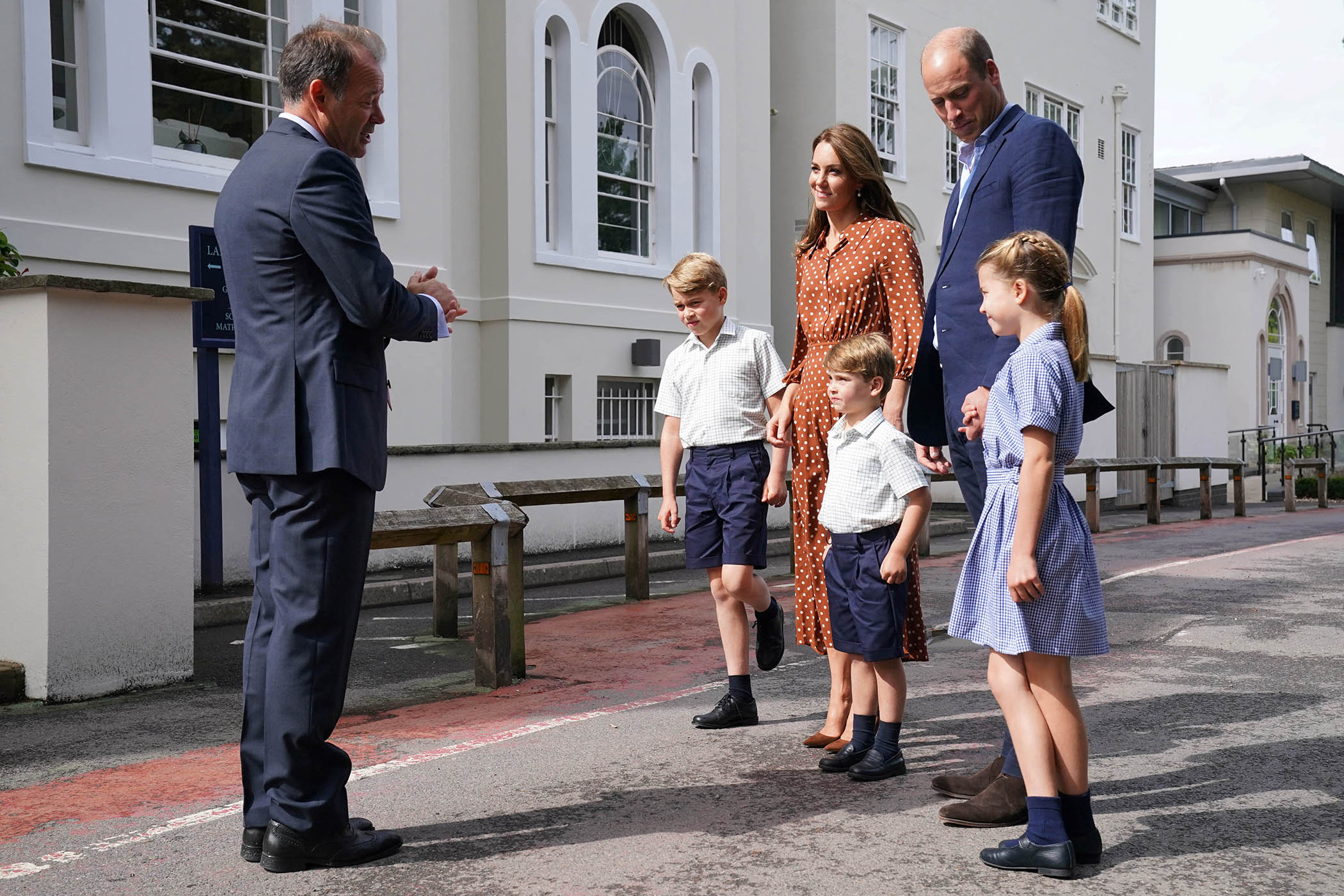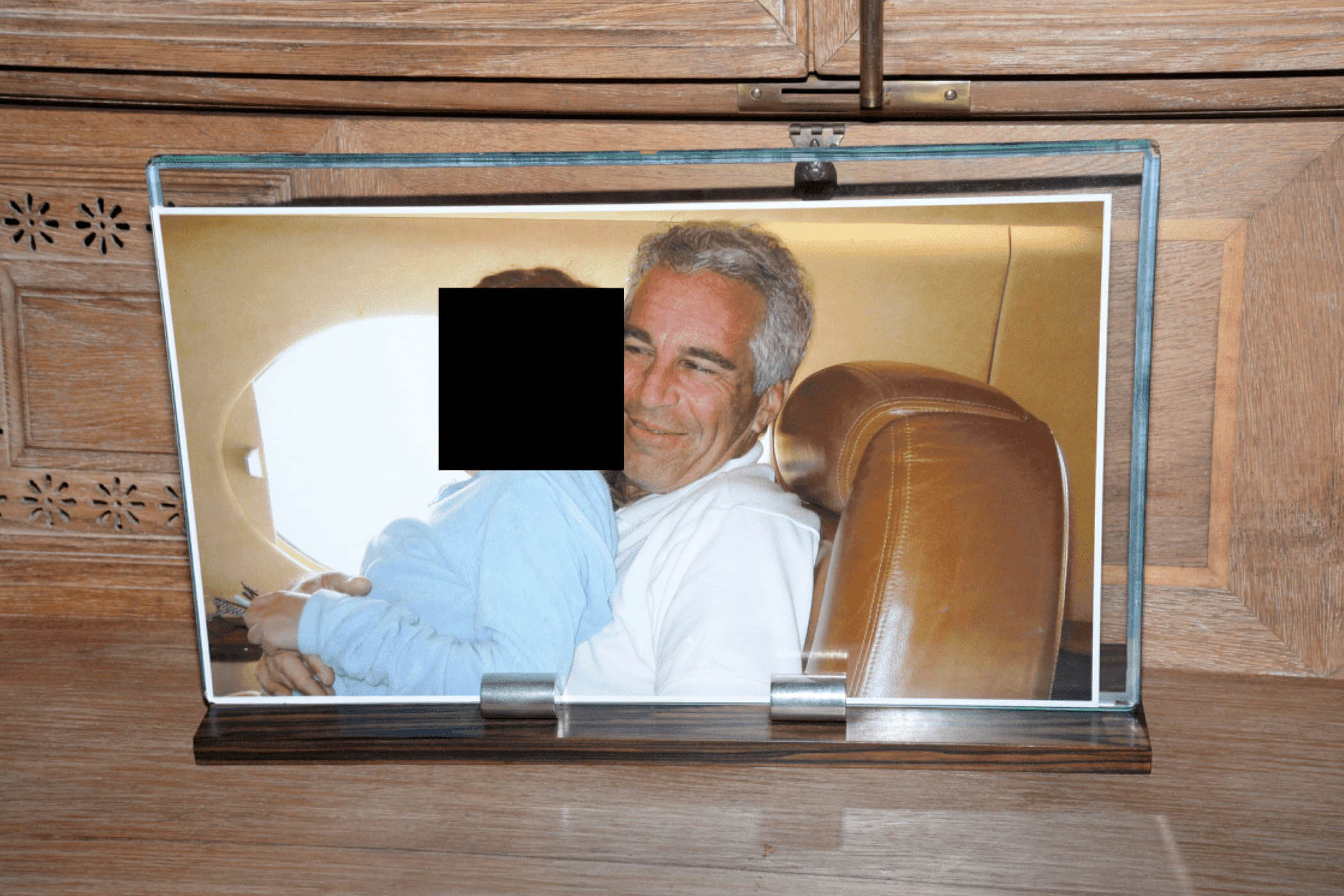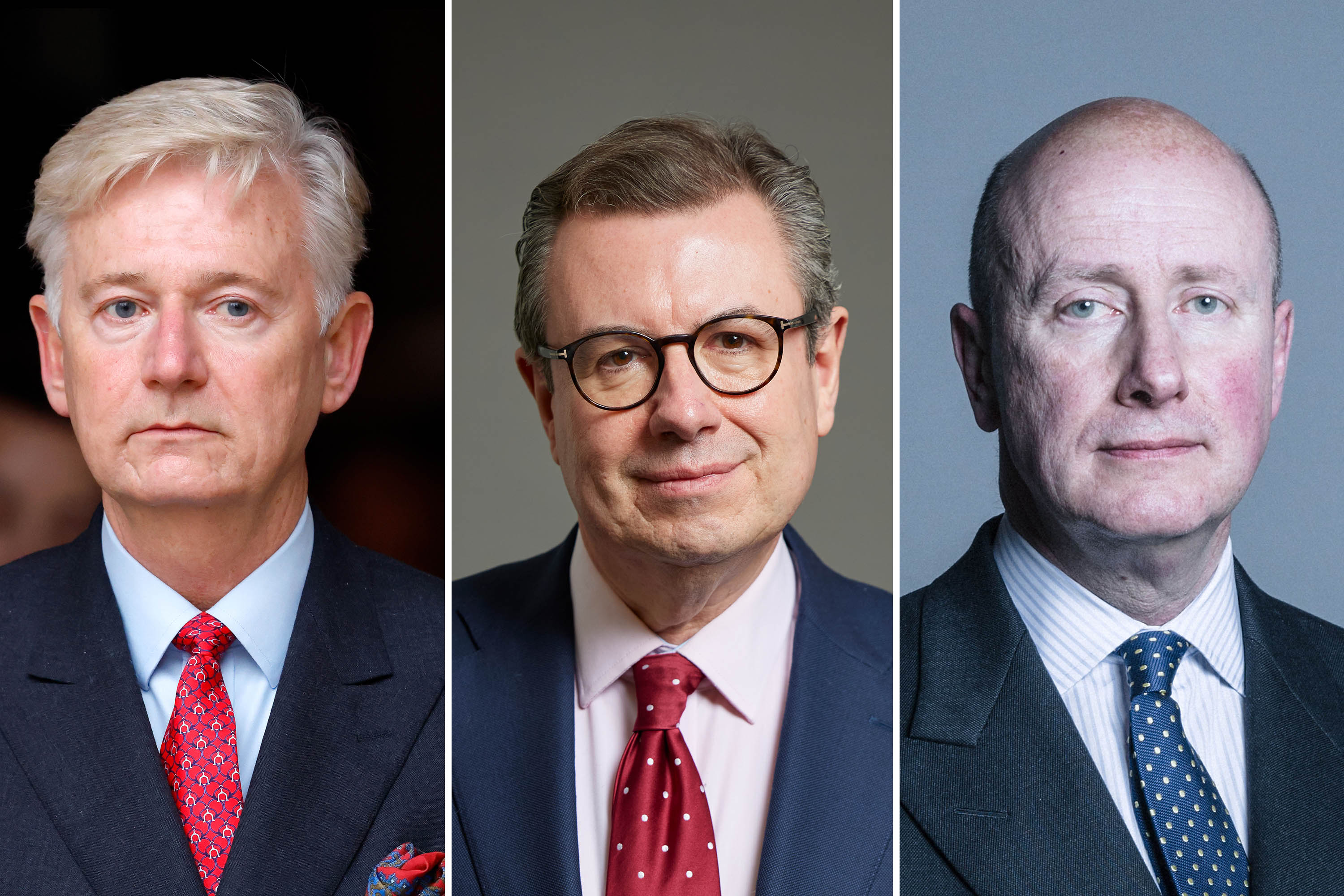For more on this story, listen to Rachel Sylvester’s episode of The Slow Newscast, William: The reluctant prince, here.
On Friday, Prince William visited the headquarters of the London ambulance service in Waterloo. He knew then that, within hours, his uncle Prince Andrew would, in effect, be banished from the court of King Charles III.
In recent years, the key strategic reputational decisions within the royal family have been run past – or driven by – the Prince of Wales. “Of course William was very much involved,” said a former courtier. “The former Duke of York always liked the grandeur and the connections he could make through his royal role. William is absolutely clear that’s not the sort of monarchy he wants.”
But as he walked around talking to call handlers and mental health nurses, William gave nothing away. When a young female paramedic described being sexually assaulted while responding to an emergency call, he listened intently then asked her gently: “Does that prey on your mind, going to more jobs?” He was shocked to hear that the call handlers receive abuse on a daily basis. They told him it was just part of the role. “It shouldn’t be,” he replied.
The royals are not my regular beat but I was there because for the past few weeks, even before Friday night’s latest drama in the family, I have been trying to understand the plans of the future king. William has been sending signals that he plans for a very different kind of monarchy – fewer people on the balcony, a bigger impact on the ground.
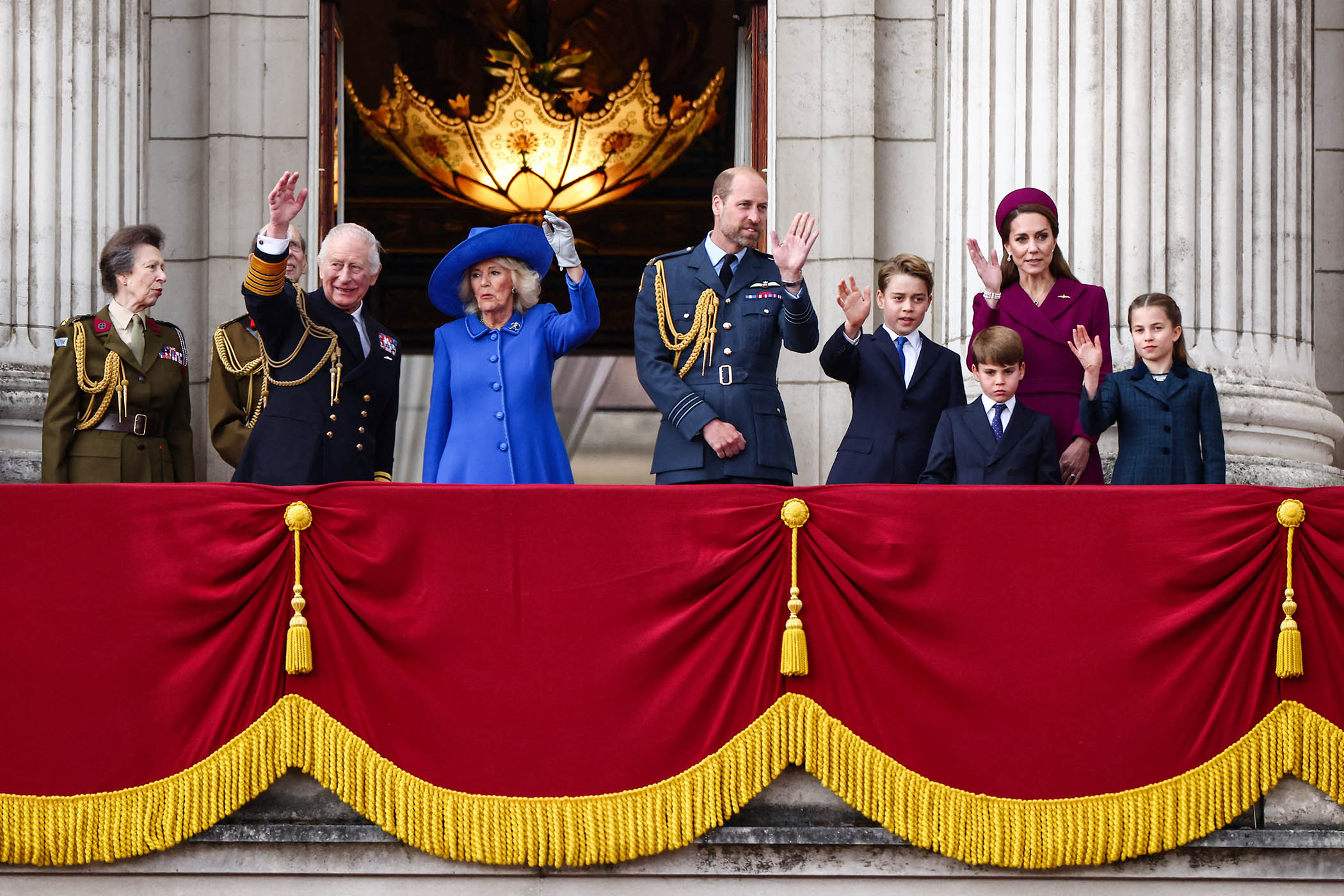
The royal family on the 80th anniversary of VE Day, 5 May 2025
Prince Harry has left the UK for the US. Andrew has given up his royal titles. Charles is still receiving treatment for cancer. Over the summer, the Prince and Princess of Wales announced that they had no plans to move to Buckingham Palace. Instead, Forest Lodge, an eight-bedroom mansion on the Windsor estate, will be their “forever home” – at least while their children grow up. George is 12, Charlotte 10 and Louis seven. Within royal circles, preparations for William’s likely long reign have begun.
Jamie Lowther-Pinkerton, who worked as private secretary to William and Harry for a decade when they were in their 20s, watched the heir to the throne work out how to deal with having a role he never chose. “One of the things I really like about him is he’s a reluctant prince but he’s doing his duty,” he said.
Lowther-Pinkerton remembers going to an event with William when the prince was 22. “There were hundreds of people outside. He got into the car, looked at me and said: ‘I simply cannot understand why they would want to come out and cheer like that.’ He then said: ‘But I tell you what – I’ll do my best to use it to really good effect.’”
The buzzwords at Kensington Palace are “impact” and “solutions” rather than pomp and ceremony.
Next month, William will travel to Brazil to announce the winner of the Earthshot prize, his global environmental award that gives £1m to each of five innovators helping the planet. He will also attend the Cop30 climate summit. The climate crisis has become more politically contested, with both the Tories and Reform UK calling for the government to scrap net zero targets, but the future king has no intention of keeping quiet on an issue he feels passionately about. Aides stress that his commitment to the cause is “unwavering”.
Newsletters
Choose the newsletters you want to receive
View more
For information about how The Observer protects your data, read our Privacy Policy
Anthony Seldon, the constitutional historian, argues that, at a time when populists “deny the existence of objective truth”, the royal family has an increasingly important role in defending the facts. “The monarchy providing that still point is more important than ever,” he said. “He [William] can double down on talking about the environment without saying: ‘It’s net zero by 2050.’”
This week, the king will travel to Rome to pray in the Sistine Chapel, the first time a British monarch and pontiff have done so publicly since the Reformation. His son is increasingly concerned about the divisions that are emerging in the country he will one day rule and is considering adding social cohesion to the issues he champions.
One insider said: “The thing William gets, which is different from Charles, is that you can’t resolve this by getting a lot of faith leaders to write an accord – it’s more about communities coming together.”
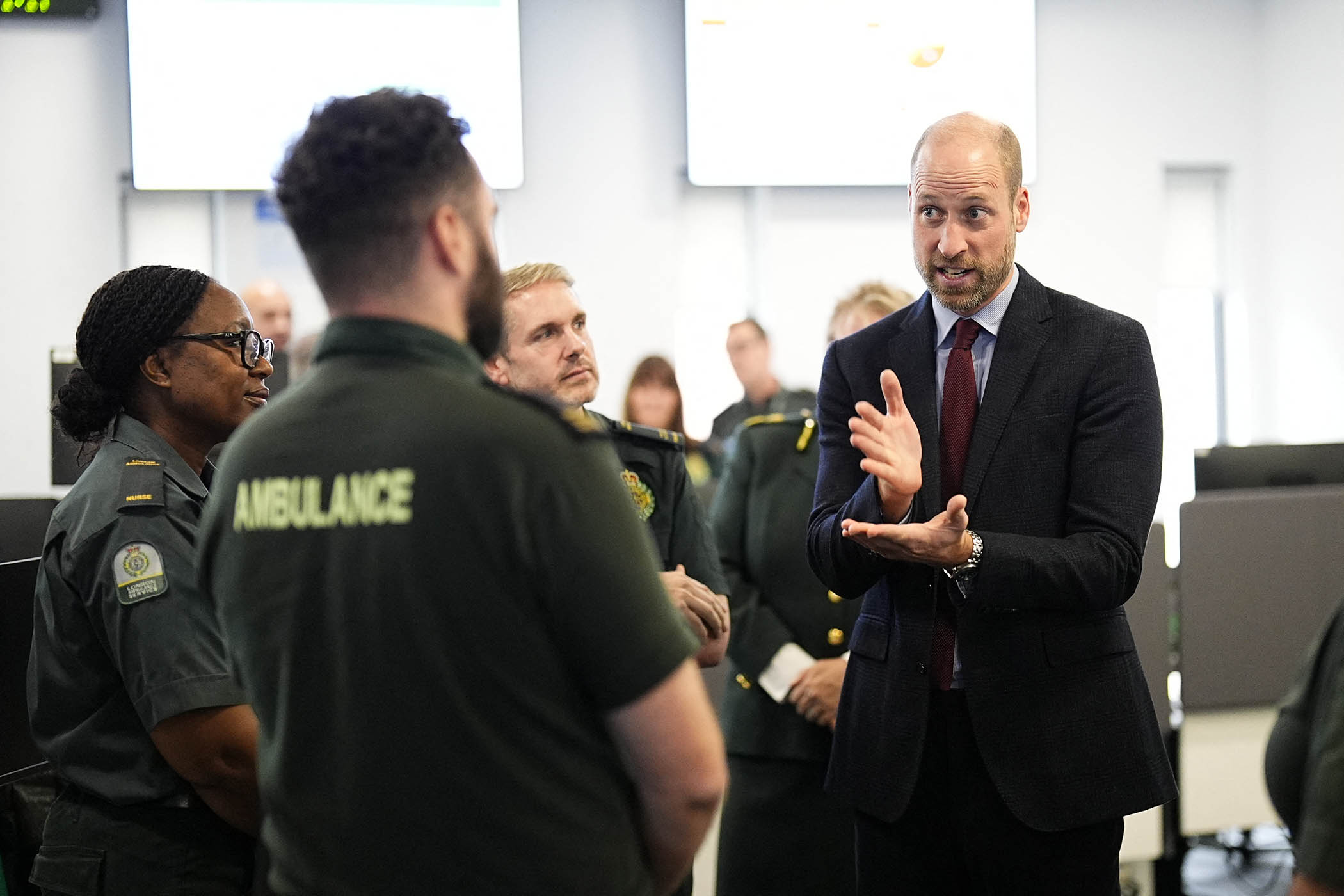
William meets call handlers and dispatchers with the London Ambulance Service, 17 October 2025
There will be no “black spider letters” to government ministers. Julia Cleverdon, who helped Charles run his charities for more than 30 years, said: “The current Prince of Wales, unlike his father, is unlikely to work until 2 o’clock in the morning signing letters which he has personally handwritten. The king has never used a computer in his life, although he can manage a WhatsApp message to a grandson. William is a man of his times and his age.”
Princess Anne describes herself as being like a “very good HGV driver” and her brother Charles as “one of the best fly-fishers in Britain”, who casts his fly far and wide to catch multiple good causes. “William is not a fly-fisher – he’s very focused,” said Cleverdon. “I think it will be much more like a European bicycling monarchy.”
The contrast with Andrew could not be starker. While the former Duke of York was addicted to the trappings and titles of royalty, the Prince of Wales wants to live a “normal” life. He does the school run, makes breakfast for his children and reads them bedtime stories. He shops in the local supermarket, walks the family dog, Orla, and zips around the grounds at Windsor Castle on an electric scooter.
His wife, Catherine, does most of the cooking - her favourite dish is miso salmon - but William takes his turn in the kitchen, knocking up spaghetti bolognese. There are no live-in staff. “When they go to bed in the evening, it’s just them and the kids,” said a royal aide. “He wants to build that life for his children and give them the start that he didn’t have. He says he wants to create something that George is proud of and give the children a bit of normality before they run the family business.”
Andrew used to travel with a valet carrying an ironing board to press his trousers, and Charles insisted on bringing his own loo seat and painting easel.
David Manning, the senior diplomat who was asked by the late queen to help set up a private office for William and Harry when he retired as UK ambassador to the US in 2007, recalled: “When we went on the early foreign trips, William would be wearing jeans on the plane and carrying his own bag. I think that reflects a different sense of how he wants to be seen and how he’s approaching monarchy.”
Some people in the palace disapproved but Manning said: “He’s never wanted to be just some kind of princely celebrity – he’s always seen his role as to try and make a difference on issues he cares about. He wants to have an impact and he found he could.
“If he sits down with a child who says: ‘I lost my mother’ and he says: ‘I know how that feels’ – that’s pretty powerful . He doesn’t do it for the cameras; he does it because he believes in it. I think as king he’ll be extremely steady, responsible and thoughtful.”
When William was 11, his mother, Diana Princess of Wales, took him to visit the Passage, a homelessness shelter in Westminster. He still goes back every few months, often with no publicity, to chop carrots, do the washing up, serve meals or deliver food parcels.
“People experiencing homelessness are good at sussing very quickly whether someone’s genuine and authentic,” said Mick Clarke, who runs the project. ”The best way I can describe it is: he’s just him. He’ll be scheduled to stay for an hour and it’ll be three because he won’t leave until he’s talked with everybody. There are no airs and graces.” Clarke thinks the prince may invite some of the homeless people he knows by name to his coronation.Former foreign secretary William Hague, who chaired the Royal Foundation, which oversees the prince’s charitable work, believes his greatest power is as a convenor. “He’s an optimist in the sense that if you can assemble the right people to tackle something, you will make progress.”
The defenestration of Andrew and the departure of Harry to California mean that the burden of royal duties will fall increasingly on the Prince and Princess of Wales and their children.
Craig Prescott, a constitutional expert at Royal Holloway, University of London, who is writing a book on the monarchy, said the balcony lineup has shrunk. “In 10 years’ time, you might just be looking at the Prince of Wales and Catherine, maybe as King William and Queen Catherine, and the three children, who aren’t really much past 18, if at all. Having a very small family could be a real risk because, as Elizabeth II said, the monarchy needs to be seen to be believed.”
In a recent conversation with Eugene Levy, for the Canadian actor's Apple TV+ show The Reluctant Traveler, William said he did not want to be like the king on the chessboard who can move only one square at a time. Insisting that he did not want to be “suffocated” by history, he stressed that “change is on my agenda”.
The surgeon and former health minister Ara Darzi, who works with William as patron of the Fleming Initiative on antimicrobial resistance, thinks his curiosity and flexibility will serve him well as king. “Our life is going to change completely in the next 10 years on the back of artificial intelligence,” said Lord Darzi. “Whether you happen to be a professor of data sciences or the sovereign of this country, they are the same challenges. I think he is an innovator in his role.”
In his novel The Leopard, Giuseppe Tomasi di Lampedusa wrote: “Everything must change for everything to remain the same.”
Lowther-Pinkerton thinks it perfectly sums up William’s approach to the monarchy. “There’s a chameleon-like quality to successful monarchies which means they adjust to the epoch they’re in,” he said. “Otherwise, they won’t survive.”
Photographs by Jonathan Brady/AFP/Getty Images, Henry Nicholls/AFP/Getty Images, Aaron Chown/Getty Images
